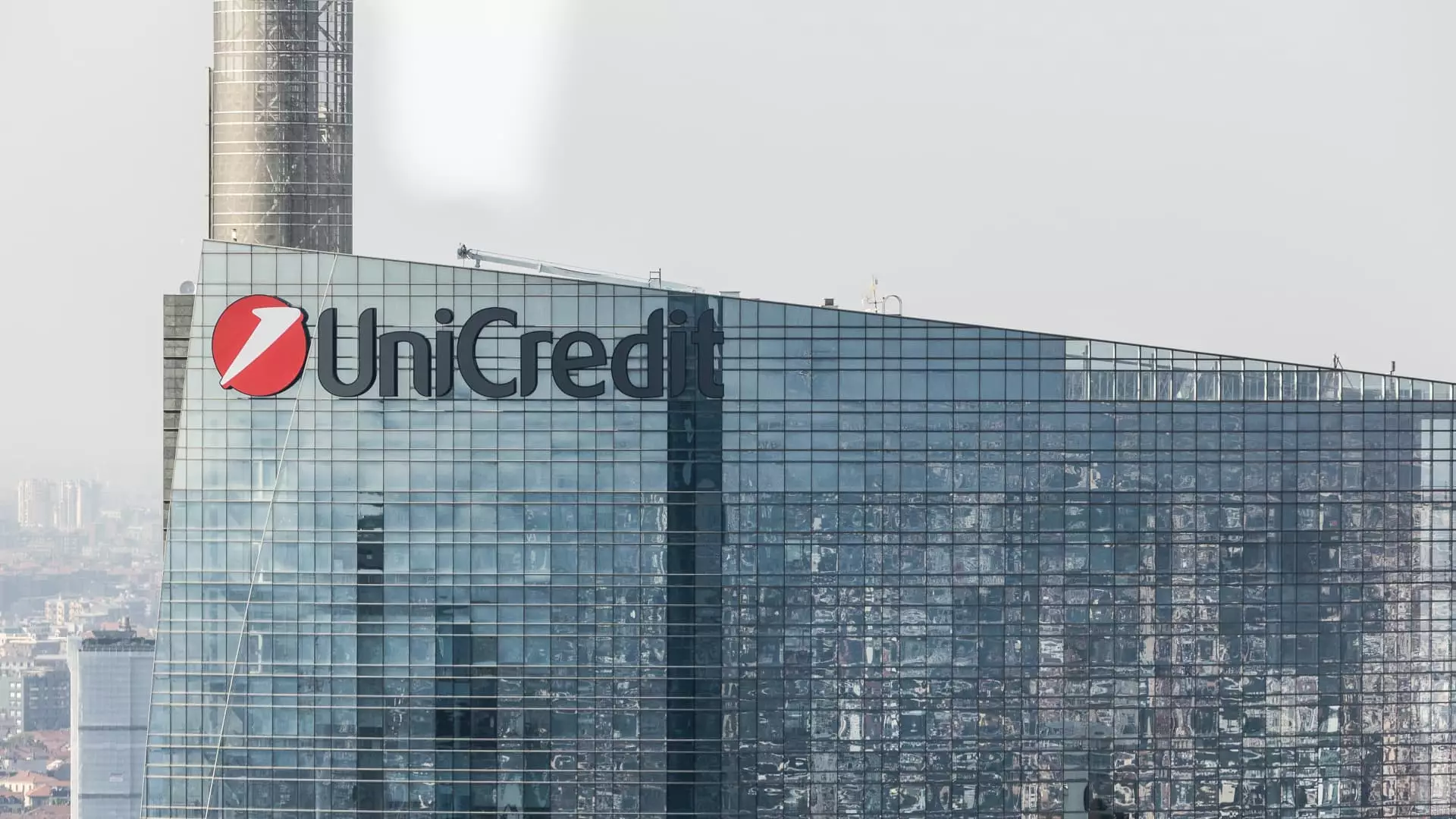Recent developments in the banking sector have shed light on Italy’s second-largest bank, UniCredit, and its strategic maneuvers involving German lender Commerzbank. On Wednesday, UniCredit announced an increase in its stake in Commerzbank from 21% to 28%. This change involves a direct stake of 9.5% and an additional 18.5% acquired through derivative instruments. The bank’s gradual expansion raises questions on its future intentions and the implications for the European banking environment.
UniCredit’s latest move comes as it formally seeks approval from the European Central Bank (ECB) to elevate its stake to 29.9%. CEO Andrea Orcel’s strategy is notable not only for its focus on Commerzbank but also for its simultaneous pursuit of a bid for the Italian bank Banco BPM. This dual approach highlights a broader ambition within UniCredit to consolidate its holdings in key European markets. Through a press release, UniCredit articulated its belief that substantial latent value exists within Commerzbank, indicating a strong intent to harness growth opportunities within the German banking sector. This sentiment underscores the importance of a resilient banking framework, particularly in Germany, as a catalyst for economic advancement.
Despite UniCredit’s expressed confidence, reactions from Commerzbank and the German government have been notably cautious. Commerzbank acknowledged UniCredit’s stake increase but abstained from further commentary, directing focus towards a strategic overhaul that will be unveiled on February 13. The German government, owning a 12% stake in Commerzbank, has historically resisted efforts to merge with foreign financial institutions, especially considering its own political volatility following recent governmental strife.
The backdrop of a potential takeover is compounded by the German administration’s apprehensions about foreign acquisitions of crucial domestic assets. The broader implications of these dynamics could yield challenges for Orcel’s ambitions, particularly given the political context affecting Chancellorship and coalition stability.
Financial analysts are closely monitoring UniCredit’s strategy, noting the potential synergies that could emerge from consolidating operations with Commerzbank. Transactions involving areas such as capital markets, trade finance, and advisory services could enhance operational efficiency and market competitiveness. However, analysts also suggest that Orcel may need to enhance his bid for Banco BPM—possibly by including a cash element—to further strengthen UniCredit’s foothold in Italy, where it consistently trails behind Intesa Sanpaolo.
Market reactions to these developments indicate a tentative optimism, with UniCredit’s stock reflecting a modest increase of 1.1% and Commerzbank enjoying a more significant rise of 3.1%. Such fluctuations typically signal investor sentiment and might suggest an underlying belief in the viability of these corporate strategies.
UniCredit’s maneuvers towards greater ownership of Commerzbank indicate an ambitious strategy aimed at enhancing its competitive position both in Italy and Germany. However, the interplay of market dynamics, regulatory considerations, and political factors within Germany presents a complex landscape of challenges and opportunities. As the situation evolves, the coming months will be crucial in determining whether UniCredit’s aspirations can indeed translate into a sustainable competitive advantage or whether they will encounter significant obstacles along the way.

